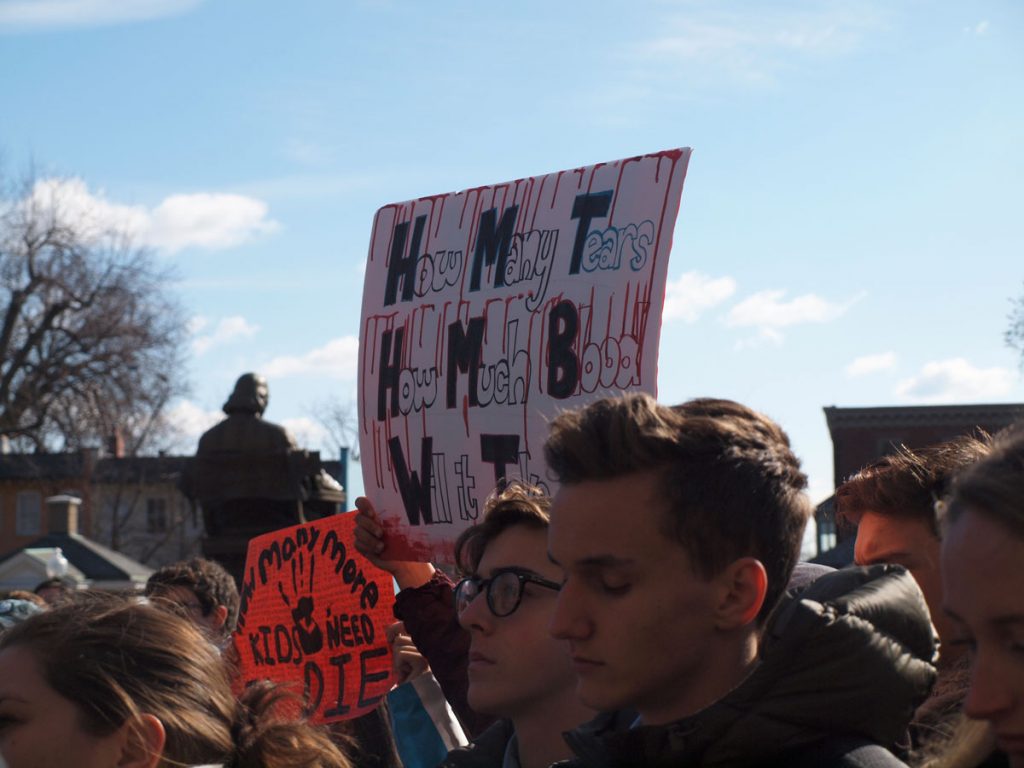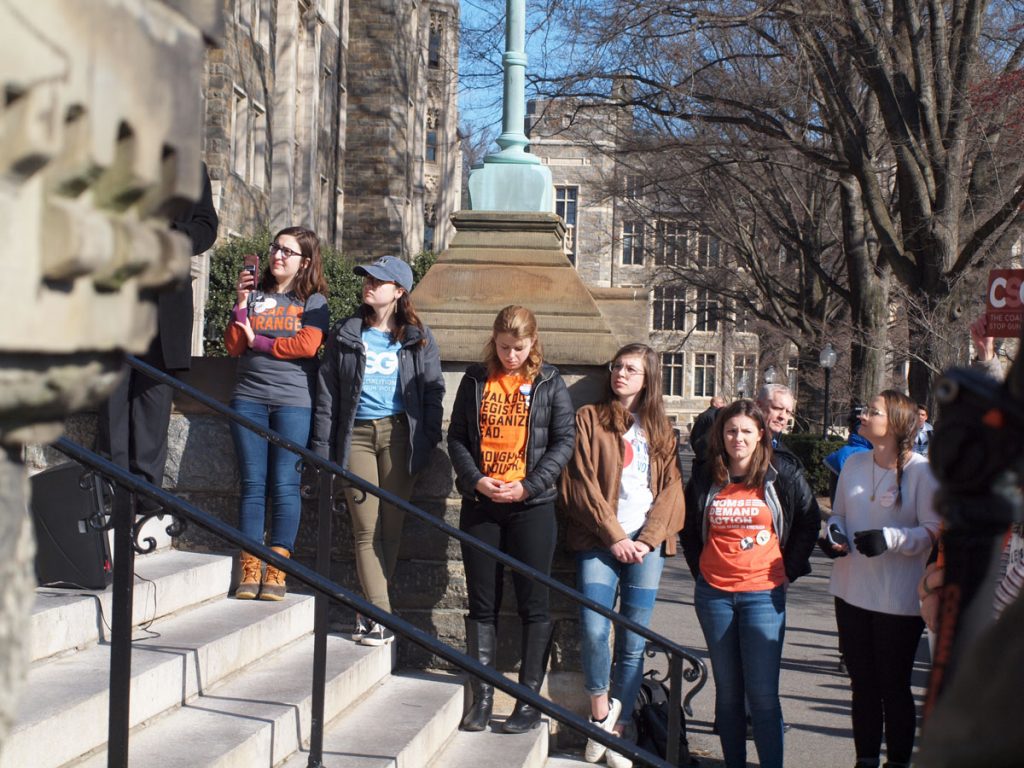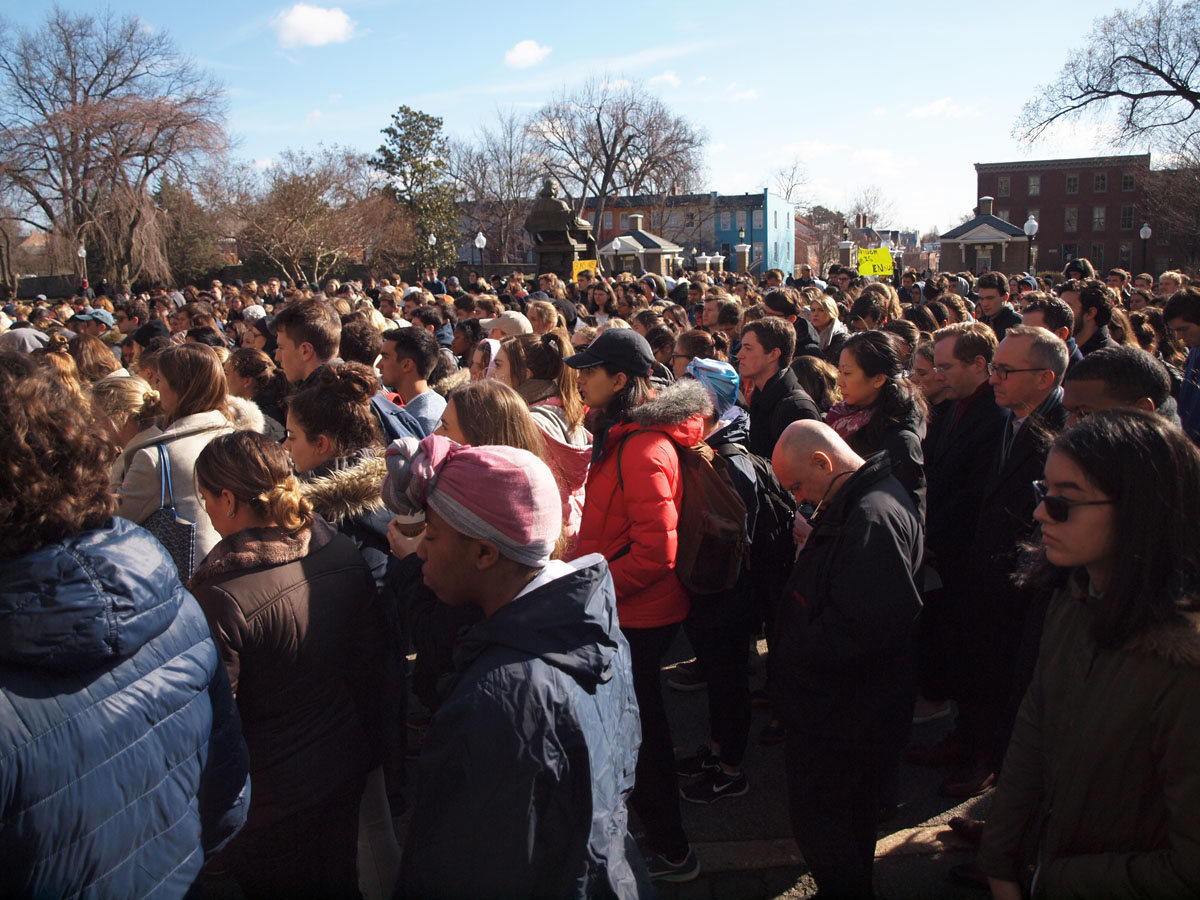Over 200 Georgetown students participated in the Walkout to End Gun Violence, a nation-wide event in which students left their classes in protest of the government’s lack of action on gun reform on March 14.
Taking place exactly one month after the Marjory Stoneman Douglas High School shooting in Parkland, Fla., students stood in Healy Circle from 10:00 to 10:17am: seventeen minutes to commemorate the 17 students and staff killed in the Feb. 14 shooting. As part of the National School Walkout event organized by the Women’s March Youth EMPOWER group, Georgetown was one of 3,136 demonstrations organized by students across the country.
Student organizers, university president John DeGioia, and students affected by gun violence spoke to those gathered before a 3-minute period of silence that represented the three minutes in which a former MSD student killed 17 people. The event concluded with a reading of names of the students who died in Parkland and of those in Washington, D.C. who have died of gun violence in recent months.
Speakers emphasized that the issue of gun violence is not limited to mass shootings. Karishma Trivedi (NHS ‘18), one of the organizers of the walkout, said the event was meant to commemorate the shooting in Parkland and other mass shootings, but also for all the lives lost to gun violence.
“We are all walking out today not only in honor of the 17 who were killed in Parkland, but for all victims of gun violence—over 30,000 each year— in every community,” Trivedi said during her speech to participants.

Student demonstrators held signs high during the 17 minute event. Jack Townsend/Voice
Emma Vahey (COL ’20), another organizer of the walkout, stated that gun violence does not affect everyone equally.
“We need to focus on the intersection with communities of color and young people way more,” Vahey said.
DeGioia said that he was glad to see so many students showing up in support of bringing an end to gun violence.
“When we are faced with a challenge like the one we are faced with today, we respond best when we respond together, when we come together as a community as we do this morning,” he said. “There is a conviction that we share as members of this community, the belief that there is a good that we can achieve together that we can never hope to achieve alone.”
Camille Banjuj (SFS ’19) joined to show the importance of having a large community advocating at Georgetown for gun reform.
“There are students who have been affected by mass shootings on campus. What does it mean to be an ally to them? The first part of that is showing up. I think this is a good way for a community to process this together,” Banjuj said.
Many professors and staff also participated in the demonstration. Sylvia Undar, a professor in the anthropology department, said that the problem of gun violence in the United States has effects around the world.
“I think as a country we’re arming to an extreme level, and we’re also arming the world,” Undar said. “And so I think a lot of the problems we have right here in the United States are also reflected everywhere else in the world, and I don’t think the classroom should be the new place that gets armed.”

Organizers and activists listen to student speakers on the Healy steps. Jack Townsend/Voice
The Corp closed their storefronts for 17 minutes to show solidarity with the event.
“We at The Corp believe that all students deserve an education free from fear and violence,” read the organization’s official statement on the decision.
Organizers urged students to take action beyond the day’s walkout, including registering to vote and attending the March for Our Lives, organized by Parkland survivors, on March 24. Zach Fagan (NHS ‘21), whose cousin Victoria Soto was killed in the 2012 Sandy Hook Elementary School shooting while she protected her students, said that Georgetown students had a distinct opening to drive permanent change if they take action now.
“As students from all over the country and the world, we have a unique opportunity to have an impact not only on campus and in D.C. but also in our own communities at home,” Fagan said. “Getting involved is the best way to make change. Set an example for the younger generation to show that we are fighting for them.”





